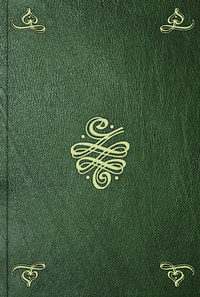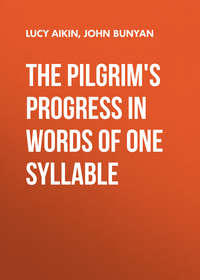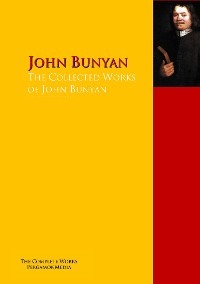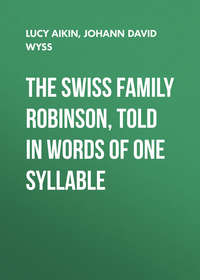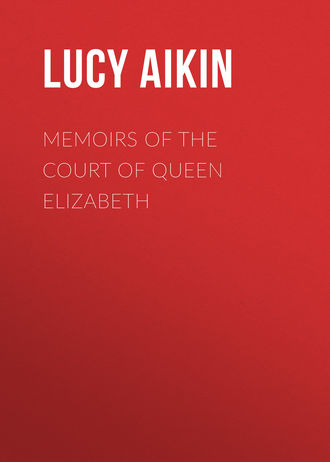 полная версия
полная версияMemoirs of the Court of Queen Elizabeth
Such being the state of religious opinion in England at the accession of Elizabeth, it will not appear wonderful that the Genevan reformer should have begun to indulge the flattering expectation of seeing his own scheme established in England as in Scotland, and himself revered throughout the island as a spiritual director from whose decisions there could be no appeal. Emboldened at once by zeal and ambition, he hastened to open a communication with the new government, in the shape of an exhortation to the queen to call a protestant council for establishing uniformity of doctrine and of church government; but his dream of supremacy was quickly dissipated on receiving for answer, that England was determined to preserve her episcopacy.
This decisive rejection of the presbyterian form was followed up by other acts on the part of the queen which gave offence to all the real friends of reformed religion, and went far to prove that Elizabeth was at heart little more of a protestant than her father. The general prohibition of preaching, which was strictly enforced during the first months of her reign, was understood as a measure of repression levelled full as much against the indiscreet zeal of the returned exiles, as against the disaffection of the catholics. An order that until the next meeting of parliament no change should be made in the order of worship established by the late queen, except the reading of the creed and commandments in English, implied, at least, a determination in the civil power to take the management of religion entirely out of the hands of a clergy whose influence over the minds of the people it viewed with a jealous eye. It was soon also discovered, to the increasing horror of all true protestants, that the queen was strongly disposed to insist on the celibacy of the clergy; and even when the strenuous efforts of Cecil and others had brought her to yield with reluctance this capital point, she still pertinaciously refused to authorize their marrying by an express law. She would not even declare valid the marriages contracted by them during the reign of her brother; so that it became necessary to procure private bills of legitimation in behalf of the offspring of these unions, though formed under the express sanction of then existing laws. The son of Cranmer himself, and the son of archbishop Parker, were of the number of those who found it necessary to resort to this disagreeable and degrading expedient.
Other things which offended the reformists were, the queen's predilection, already mentioned, for crucifixes, which she did not cause to be removed from the churches till after considerable delay and difficulty, and retained in her private chapel for many years longer,—and her wish to continue the use of altars. This being regarded as a dangerous compliance with the Romish doctrine, since an altar could only suit with the notion of a sacrifice of Christ in the mass, earnest expostulations on the subject were addressed to her by several of the leading divines; and in the end the queen found it expedient, with whatever reluctance, to ordain the substitution of communion-tables.
She was also bent upon retaining in the church of which she was the head the use of vestments similar to those worn by the different orders of popish priests in the celebration of the various offices of their religion. A very natural association of ideas caused the protestant clergy to regard with suspicion and abhorrence such an approximation in externals to that worship which was in their eyes the abomination of idolatry; and several of the returned exiles, to whom bishoprics were now offered, scrupled to accept of them under the obligation of wearing the appointed habits. Repeated and earnest representations were made to the queen against them, but she remained inflexible. In this dilemma, the divines requested the advice of Peter Martyr, who had quitted England on the accession of Mary and was now professor of theology at Zurich. He persuaded compliance, representing to them that it was better that high offices in the church should be occupied by persons like themselves, though with the condition of submitting to some things which they did not approve, than that such posts should be given to Lutherans or concealed catholics, who, instead of promoting any further reformation, would labor continually to bring back more and more of the ancient ceremonies and superstitions. This argument was deemed conclusive, and the bishoprics were accepted. But such a plea, though it might suffice certain men for a time, could not long satisfy universally; and we shall soon have occasion to take notice of scruples on this point, as the source of the first intestine divisions by which the Anglican church was disturbed, and of the first persecutions of her own children by which she disgraced herself.
On the whole, it must be admitted that the personal conduct of Elizabeth in this momentous business exhibited neither enlargement of mind nor elevation of soul. Considerably attached to ceremonial observances, and superior to none of the superstitions which she might have imbibed in her childhood, she was however more attached to her own power and authority than to these. Little under the influence of any individual amongst her clergy, and somewhat inclined to treat that order in general with harshness, if not cruelty,—as in the article of their marriages, in the unmitigated rigor with which she exacted from them her first fruits, and in the rapacity which she permitted her courtiers to exercise upon the temporalities of the bishoprics,—the only view which she took of the subject was that of the sovereign and the politician. Aware on one hand of the manner in which her title to the crown was connected with the renunciation of papal authority, of the irreconcileable enmity borne her by the catholic powers, and of the general attachment of her subjects to the cause of the reformation, she felt herself called upon to assume the protection of the protestant interest of Europe, and to re-establish that worship in her own dominions. On the other hand, she remarked with secret dread and aversion the popular spirit and republican tendency of the institutions of Calvin, and she resolved at all hazards to check the growth of his opinions in England. Accordingly, it was the scope of every alteration made by her in the service-book of Edward, to give it more of a Lutheran aspect, and it was for some time apprehended that she would cause the entire Confession of Augsburg to be received into it.
Of toleration, of the rights of conscience, she had as little feeling or understanding as any prince or polemic of her age. Her establishment was formed throughout in the spirit of compromise and political expediency; she took no pains to ascertain, either by the assembling of a national synod or by the submission of the articles to free discussion in parliament, whether or not they were likely to prove agreeable to the opinions of the majority; it sufficed that she had decreed their reception, and she prepared, by means of penal statutes strictly executed, to prevent the propagation of any doctrines, or the observance of any rites, capable of interfering with the exact uniformity in religion then regarded as essential to the peace and stability of every well constituted state.
To Cecil her chief secretary of state and to Nicholas Bacon her keeper of the seals, assisted by a select number of divines, the management of this great affair was chiefly intrusted by the queen: and much might be said of the sagacity displayed by her in this appointment, and of the wisdom and moderation exercised by them in the discharge of their office; much also might be, much has been said, of the excellencies of the form of worship by them established;—but little, alas! of moral or of religious merit can be awarded by the verdict of impartial history to the motives or conduct of the heroine of protestantism in a transaction so momentous and so memorable.
Three acts of the parliament of 1559 gave the sanction of law to the new ecclesiastical establishment; they were those of Supremacy, of Uniformity, and a third empowering the queen to appoint bishops. By the first, the authority of the pope was solemnly renounced, and the whole government of the church vested in the queen, her heirs and successors; and an important clause further enabled her and them to delegate their authority to commissioners of their own appointment, who amongst other extraordinary powers were to be invested with the cognisance of all errors and heresies whatsoever. On this foundation was erected the famous High Commission Court, which grew into one of the principal grievances of this and the two following reigns, and of which, from the moment of its formation, the proceedings assumed a character of arbitrary violence utterly incompatible with the security and happiness of the subject, and hostile to the whole tenor of the ancient charters.
The act of Uniformity ordained an exact compliance in all points with the established form of worship and a punctual attendance on its offices; it also rendered highly penal the exercise, public or private, of any other; and of this law it was not long before several unfortunate catholics were doomed to experience the utmost rigor.
Many parish priests who had been open and violent papists in the last reign, permitted themselves to take the oath of supremacy and retain their cures under the new order of things, a kind of compliance with the times which the court of Rome is said sometimes to have permitted, sometimes even to have privately enjoined,—on the principle of Peter Martyr, that it was better that its secret adherents should continue to occupy the churches, on whatever conditions, than that they should be surrendered entirely into the hands of an opposite party. The bishops, on the contrary, considered themselves as called upon by the dignity of their character and office to bear a public testimony against the defection of England from the holy see; and those of them who had not previously been deprived on other grounds, now in a body refused the oaths and submitted themselves to the consequences. All were deprived, a few imprisoned, several committed to honorable custody. The policy of Elizabeth, unlike the genuine bigotry of her sister, contented itself with a kind of negative intolerance; and as long as the degraded bishops abstained from all manifestations, by words or deeds, of hostility against her government and ecclesiastical establishment, and all celebration of the peculiar rites of their religion, they were secure from molestation; and never to them, as to their unfortunate protestant predecessors, were articles of religion offered for signature under the fearful alternative of compliance or martyrdom.
To supply the vacancies of the episcopal bench became one of the earliest cares of the queen and her ministers; and their choice, which fell on the most eminent of the confessors and exiles, was generally approved by the nation.
Dr. Parker, formerly her mother's chaplain and the religious instructor of her own childhood, was designated by Elizabeth for the primacy. This eminent divine had likewise been one of the chaplains of Edward VI., and enjoyed under his reign considerable church preferments. He had been the friend of Cranmer, Bucer, Latimer, and Ridley; of Cook, Cheke, and Cecil; and was the ardent coadjutor of these meritorious public characters in the promotion of reformed religion, and the advancement of general learning,—two grand objects, which were regarded by them as inseparable and almost identical.
On the accession of Mary, being stripped of all his benefices as a married priest, Parker with his family was reduced to poverty and distress; and it was only by a careful concealment of his person, by frequent changes of place, and in some instances by the timely advertisements of watchful friends, that he was enabled to avoid a still severer trial of his constancy. During this period of distress he found support and solace from the pious task of translating into English metre the whole of the Psalms. The version still exists in manuscript, and is executed with some spirit, and not inelegantly, in the old measure of fourteen syllables.
Parker's "Nolo episcopari" is supposed to have been more than ordinarily sincere: in fact, the station of metropolitan must at this juncture have been felt as one of considerable difficulty, perhaps even of danger; and the stormy temper of the queen afterwards prepared for the prelate so much of contradiction and humiliation as caused him more than once to bewail his final acceptance of the highest dignity of the English church.
With all her personal regard for the primate, Elizabeth could not always refrain in his presence from reflections against married priests, which gave him great pain.
During a progress which she made in 1561 into Essex and Suffolk, she expressed high displeasure at finding so many of the clergy married, and the cathedrals and colleges so filled with women and children; and in consequence she addressed to the archbishop a royal injunction, "that no head or member of any college or cathedral should bring a wife or any other woman into the precincts of it, to abide in the same, on pain of forfeiture of all ecclesiastical promotion." Parker regarded it as his duty to remonstrate with her in person against so popish a prohibition; on which, after declaring to him that she repented of having made any married bishops, she went on to treat the institution of matrimony itself with a satire and contempt which filled him with horror.
It was to his wife that her majesty, in returning acknowledgements for the magnificent hospitality with which she had been received at the archiepiscopal palace, made use of the well-known ungracious address; "Madam I may not call you, mistress I am ashamed to call you, and so I know not what to call you; but howsoever I thank you."
But these fits of ill-humor were transient; for Parker learned the art of dispelling them by submissions, or soothing them by the frequent and respectful tender of splendid entertainments and costly gifts. He did not long remain insensible to the charms of rank and fortune; and it must not be concealed that an inordinate love of power, and a haughty intolerance of all opposition, gradually superseded that candor and Christian meekness of which he had formerly been cited as an edifying example. Against that sect amongst the clergy who refused to adopt the appointed habits and scrupled some of the ceremonies, soon after distinguished by the appellation of Puritans, he exercised his authority with unsparing rigor; and even stretched it by degrees so far beyond all legal bounds, that the queen herself, little as she was inclined to tolerate this sect or to resent any arbitrary conduct in her commissioners, was moved at length to interpose and reverse some of his proceedings. The archbishop, now become incapable of yielding his own will even to that of his sovereign, complained and remonstrated instead of submitting: reproaches ensued on the part of Elizabeth; and in May 1575 the learned prelate ended in a kind of disgrace the career which he had long pursued amid the warmest testimonies of royal approbation.
The fairest, at least the most undisputed, claim of this eminent prelate to the gratitude of his contemporaries and the respect of posterity, is founded on the character which his high station enabled him to assume and maintain, of the most munificent patron of letters of his age and country. The study which he particularly encouraged, and to which his own leisure was almost exclusively devoted, was that of English antiquities; and he formed and presented to Corpus Christi college a large and valuable collection of the manuscripts relative to these objects which had been scattered abroad at the dissolution of the monasteries, and must have been irretrievably lost but for his diligence in inquiring after them and the liberality with which he rewarded their discovery. He edited four of our monkish historians; was the first publisher of that interesting specimen of early English satire and versification, Pierce Plowman's Visions; composed a history in Latin of his predecessors in the see of Canterbury, and encouraged the labors of many private scholars by acts of generosity and kindness.
Grindal, a divine of eminence, who during his voluntary exile at Frankfort had taken a strong part in favor of king Edward's Service-book, was named as the successor of Bonner in the bishopric of London; but a considerable time was spent in overcoming his objections to the habits and ceremonies, before he could be prevailed upon to assume a charge of which he deeply felt the importance and responsibility.
To the reputation of learning and piety which this prelate enjoyed in common with so many of his clerical contemporaries, he added an extraordinary earnestness in the promotion of Christian knowledge, and a courageous inflexibility on points of professional duty, imitated by few and excelled by none. His manly spirit disdained that slavish obsequiousness by which too many of his episcopal brethren paid homage to the narrow prejudices and state-jealousies of an imperious mistress, and it soon became evident that strife and opposition awaited him.
His first difference was with archbishop Parker, whom he highly offended by his backwardness in proceeding to extremities against the puritans, a sect many of whose scruples Grindal himself had formerly entertained, and was still inclined to view with respect or pity rather than with indignation. Cecil, who was his chief friend and patron, apprehensive of his involving himself in trouble, gladly seized an occasion of withdrawing him from the contest, by procuring his appointment in 1570 to the vacant archbishopric of York; a hitherto neglected province, in which his efforts for the instruction of the people and the reformation of the state of the church were peculiarly required and eminently successful.
For his own repose, Grindal ought never to have quitted this sphere of unmolested usefulness; but when, on the death of Parker in 1575, the primacy was offered to him, ambition, or perhaps the hope of rendering his plans more extensively beneficial, unfortunately prompted its acceptance. Thus was he brought once more within the uncongenial atmosphere of a court, and subjected to the immediate control of his sovereign in matters on which he regarded it as a duty, on the double ground of conscience and the rights of his office, to resist the fiat of a temporal head of the church.
The queen, whose dread and hatred of the puritans augmented with the severities which she exercised against them, had conceived a violent aversion to certain meetings called prophesyings, at this time held by the clergy for the purpose of exercising their younger members in expounding the Scriptures, and at which the laity had begun to attend as auditors in great numbers and with much interest. Such assemblies, her majesty declared, were nothing else than so many schools of puritanism, where the people learned to be so inquisitive that their spiritual superiors would soon lose all influence over them, and she issued positive commands to Grindal for their suppression. At the same time she expressed to him her extreme displeasure at the number of preachers licensed in his province, and required that it should be very considerably lessened, "urging that it was good for the world to have few preachers, that three or four might suffice for a county; and that the reading of the homilies to the people was enough." But the venerable primate, so far from consenting to abridge the means of that religious instruction which he regarded it as the most sacred duty of a protestant church to afford, took the freedom of addressing to her majesty a very plain and earnest letter of expostulation. In this piece, after showing the great necessity which existed for multiplying, rather than diminishing, opportunities of edification both to the clergy and the people, and protesting that he could not in conscience be instrumental to the suppression either of preaching or prophesyings, he proceeded to remonstrate with her majesty on the arbitrary, imperious, and as it were papal manner, in which she took upon herself to decide points better left to the management of her bishops. He ended by exhorting her to remember that she also was a mortal creature, and accountable to God for the exercise of her power, and that she ought above all things to be desirous of employing it piously for the promotion of true religion.
The event showed this remonstrance to be rather well-intended than well-judged. Indignation was the only sentiment which it awakened in the haughty mind of Elizabeth, and she answered it by an order of the Star-chamber, in virtue of which the archbishop was suspended from his functions for six months, and confined during the same period to his house. At the end of this time he was urged by Burleigh to acknowledge himself in fault and beg the queen's forgiveness but he steadily refused to compromise thus a good cause, and his sequestration was continued. It even appears that nothing but the honest indignation of some of her ministers and courtiers restrained the queen from proceeding to deprive him.
At the end of four or five years, her anger being somewhat abated, it pleased her to take off the sequestration, but without restoring the primate to her favor; and as he was now old and blind, he willingly consented to resign the primacy and retire on a pension: but in 1583, before the matter could be finally arranged, he died.
Archbishop Grindal was a great contributor to Fox's "Acts and Monuments," for which he collected many materials; but he was the author of no considerable work, and on the whole he seems to have been less admirable by the display of any extraordinary talents than revered and exemplary for the primitive virtues of probity, sincerity, and godly zeal. These were the qualities which obtained for him the celebration of Spenser in his "Shepherd's Calendar," where he is designated by the name of Algrind, and described as a true teacher of the Gospel and a severe reprover of the pride and worldliness of the popish clergy. The lines were written during the period of the prelate's disgrace, which is allegorically related and bewailed by the poet.
Another distinguished ornament of the episcopal bench was Jewel, consecrated to the see of Salisbury in 1560. It is remarkable that this learned apologist of the church of England had expressed at first a stronger repugnance to the habits than most of his colleagues; but having once brought himself to compliance, he thenceforth became noted for the rigor with which he exacted it of others.
In the time of Henry VIII. Jewel had become suspected of opinions which he openly embraced on the accession of Edward, and he was sufficiently distinguished amongst the reformers of this reign to be marked out as one of the first objects of persecution under Mary. As a preliminary step, on which proceedings might be founded, the Romish articles were offered for his signature, when he disappointed alike his enemies and his friends by subscribing them without apparent reluctance. But his insincerity in this act was notorious, and it was in contemplation to subject him to the fierce interrogatories of Bonner, when timely warning enabled him, through many perils, to escape out of the country. Safe arrived at Frankfort, he made a public confession, before the English congregation, of his guilt in signing articles which his conscience abhorred, and humbly entreated forgiveness of God and the church. After this, he repaired to Strasburgh and passed away the time with his friend Peter Martyr.
The erudition of Jewel was profound and extensive, his private life amiable, his performance of his episcopal duties sedulous; and such was the esteem in which his celebrated "Apology" was held, that Elizabeth, and afterwards James I., ordained that a copy of it should be kept in every parish-church in England.
Of Dr. Cox, elevated to the see of Ely, mention has already been made; and it would be superfluous here to enter more largely into the ecclesiastical history of the reign.
A careful consideration of the behaviour of Elizabeth towards the two successive primates Parker and Grindal, will furnish a sufficiently accurate notion of the spirit of her religious policy, besides affording a valuable addition to the characteristic traits illustrative of her temper and opinions.
CHAPTER XIIIa
1561Tragedy of Ferrex and Porrex.—Translations of ancient tragedies.—Death of Francis II.—Mary refuses to ratify the treaty of Edinburgh—returns to Scotland.—Enmity between Mary and Elizabeth.—Philip II. secretly encourages the English papists.—Measures of rigor adopted against them by Elizabeth.—Anecdote of the queen and Dr. Sampson.—St. Paul's struck by lightning.—Bishop Pilkington's sermon on the occasion.—Paul's Walk.—Precautions against the queen's being poisoned.—The king of Sweden proposes to visit her.—Steps taken in this matter.


